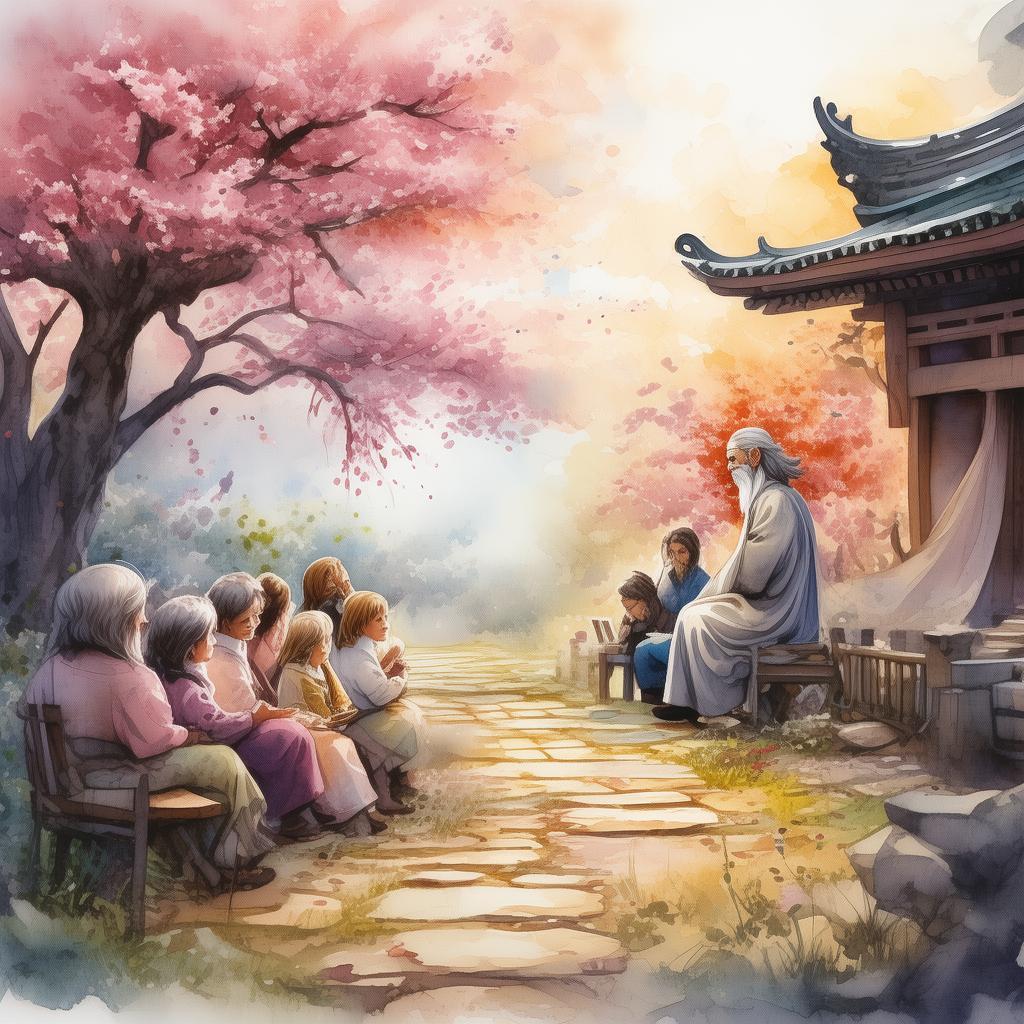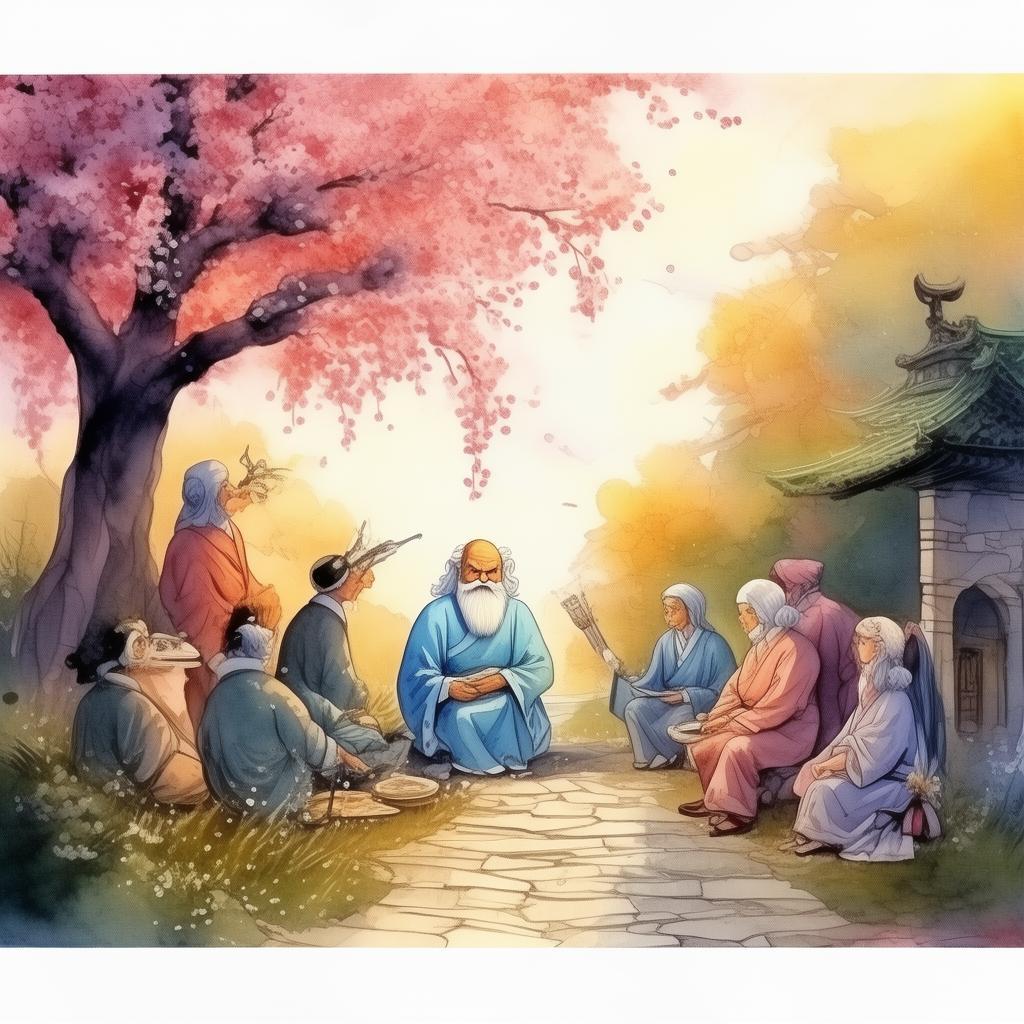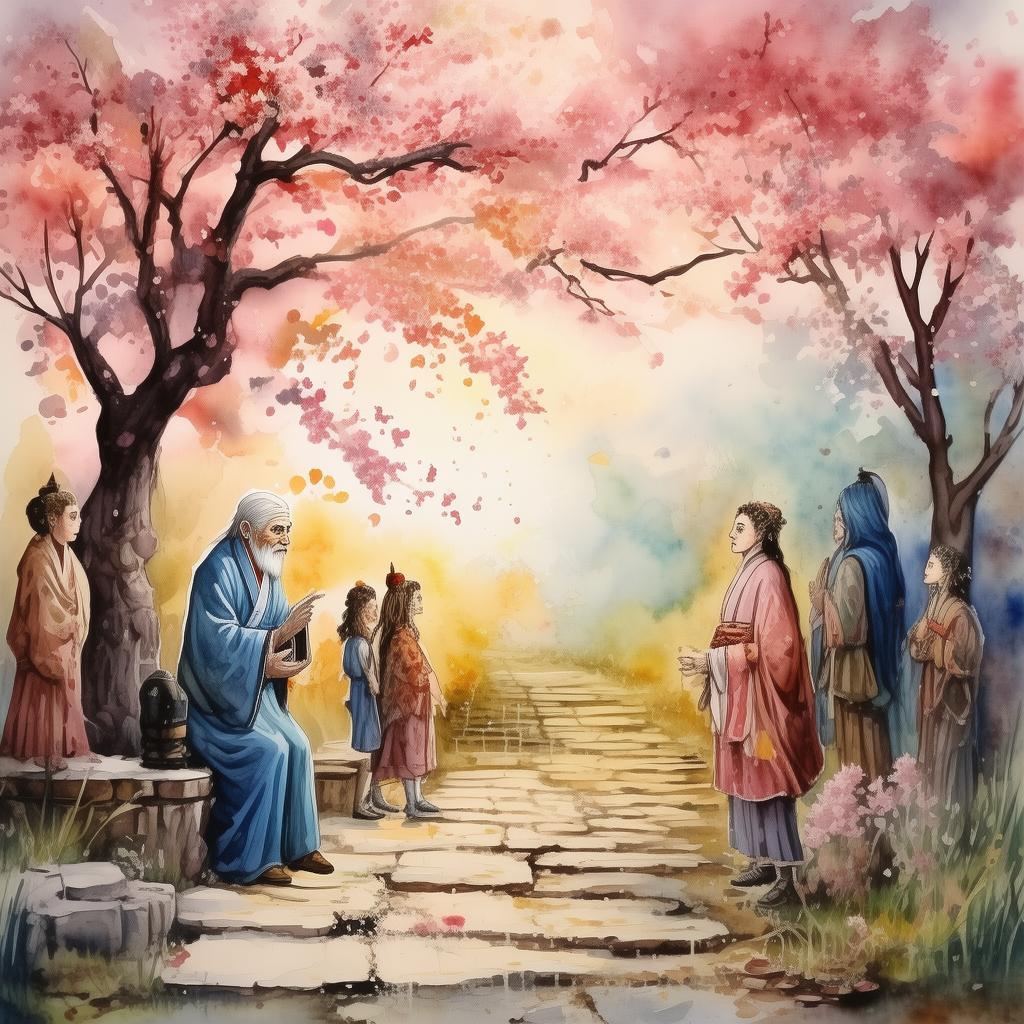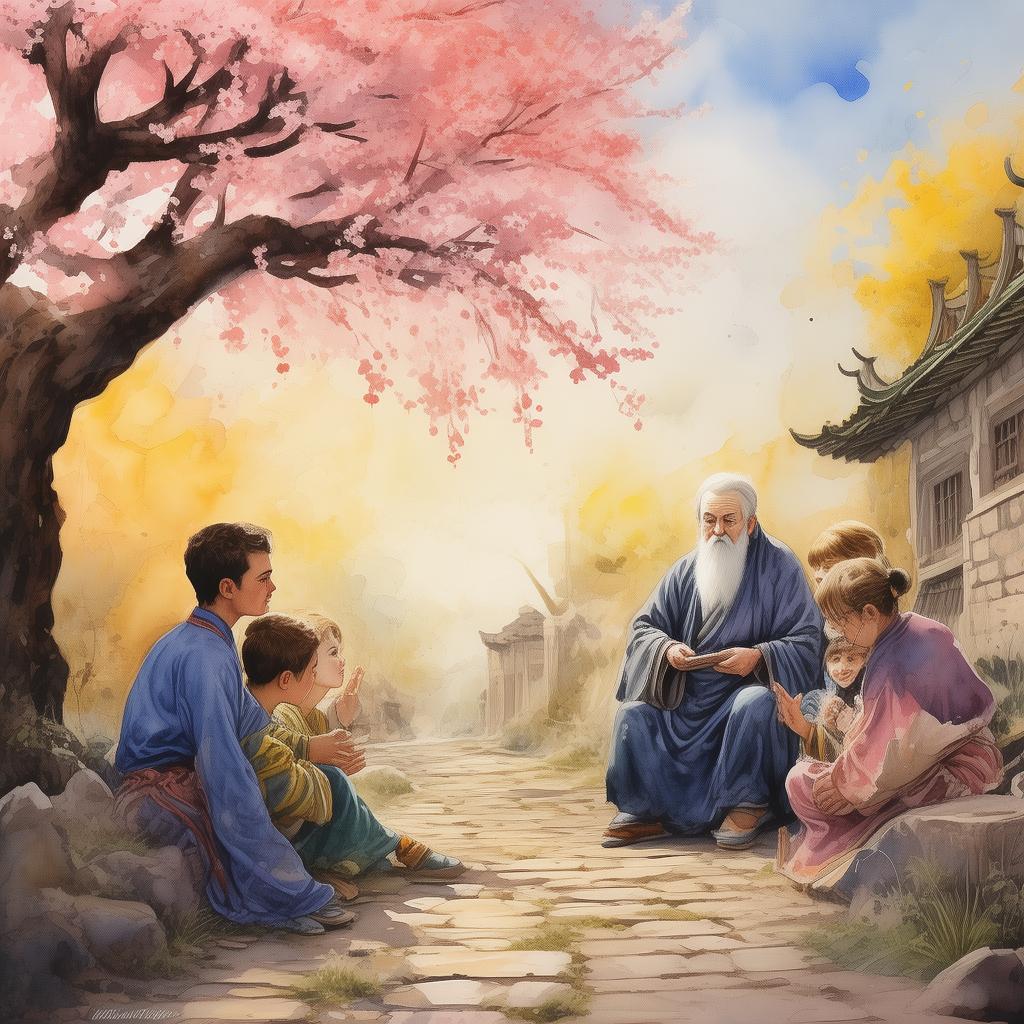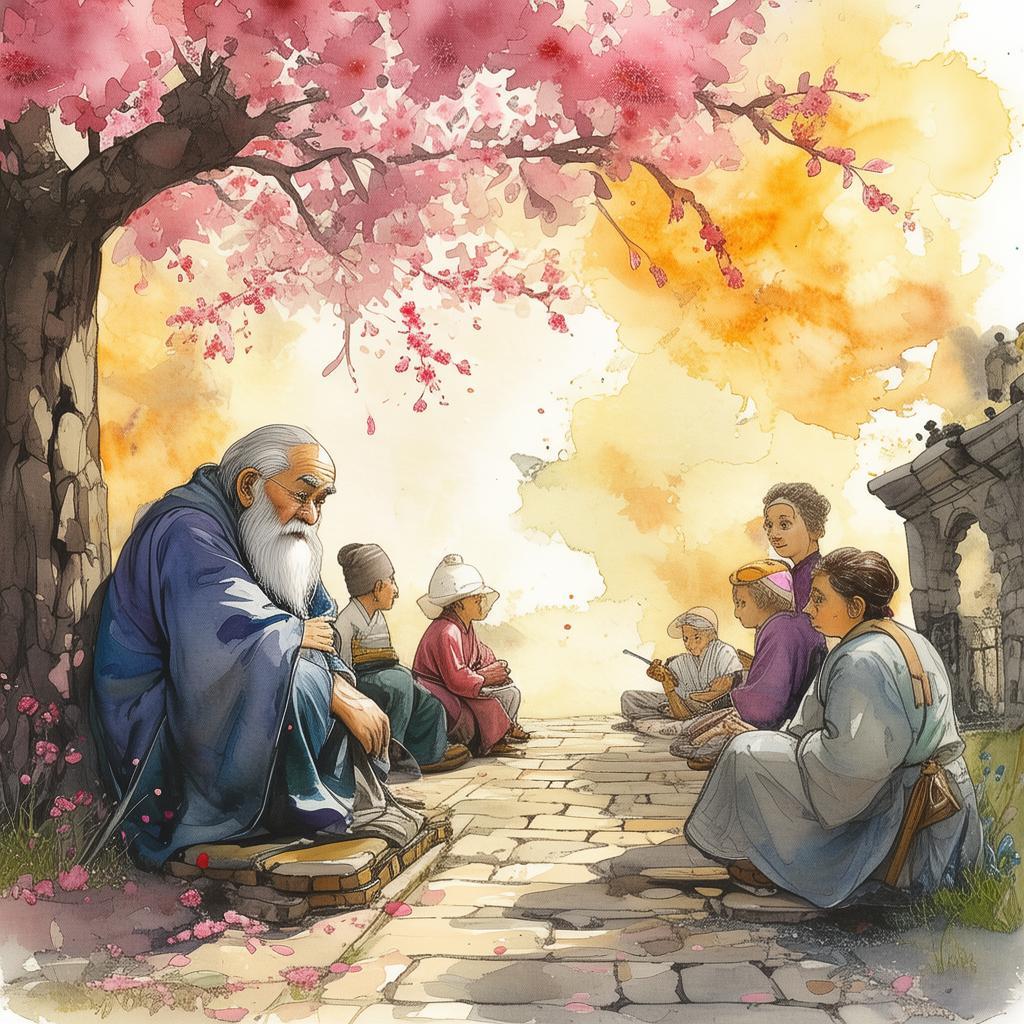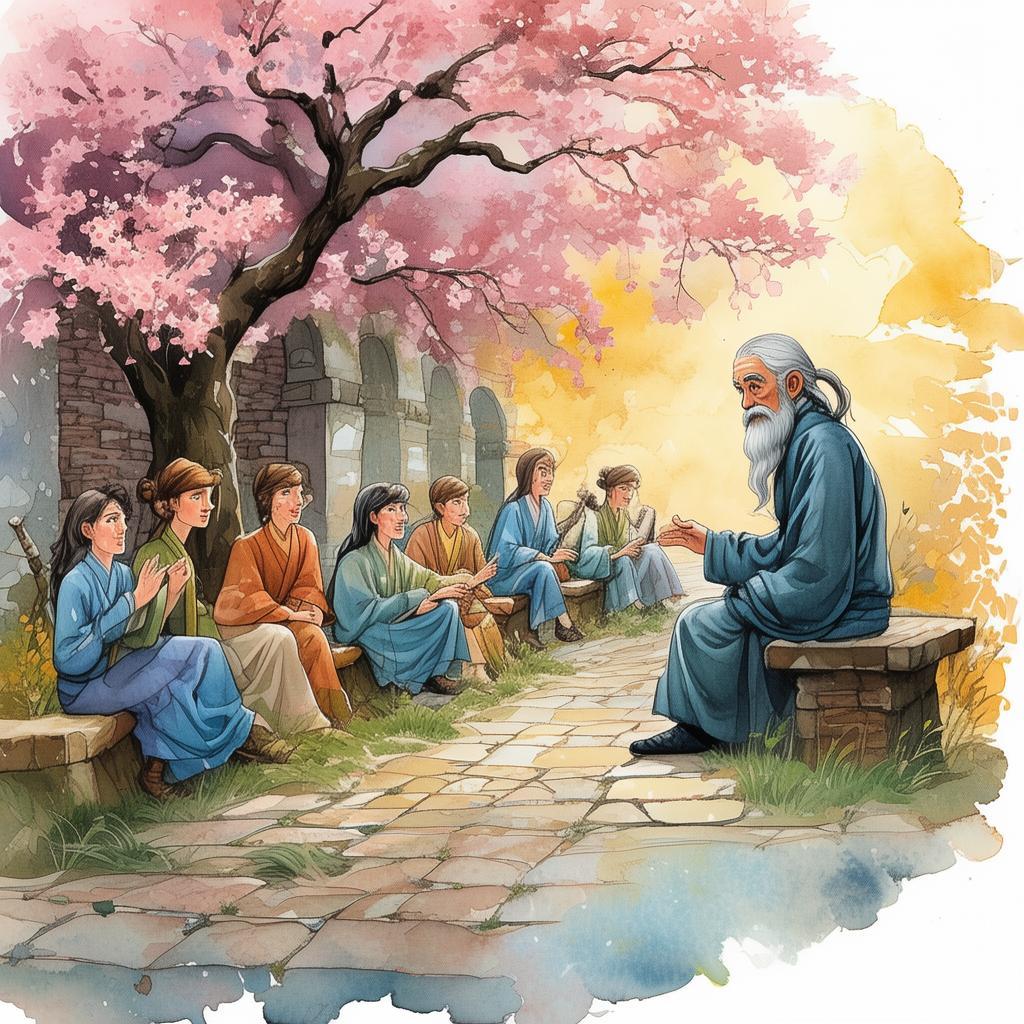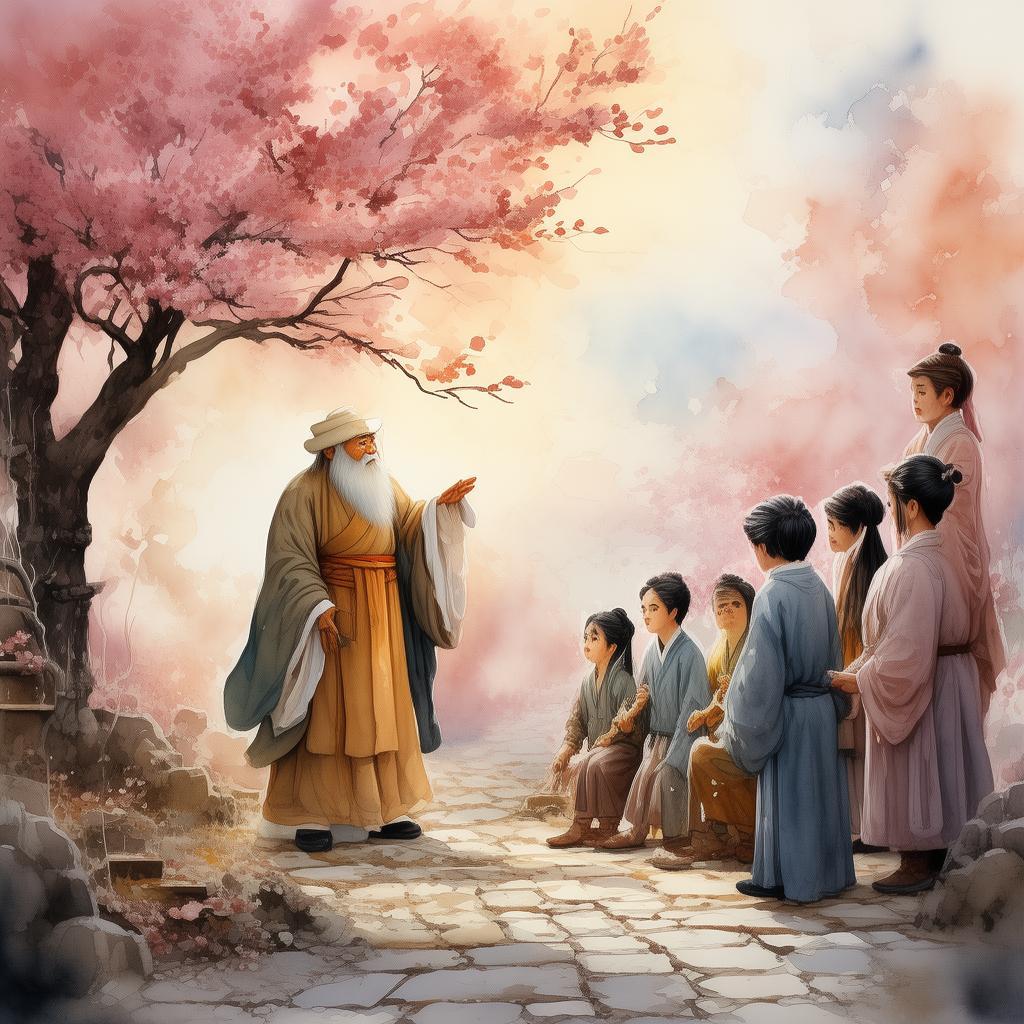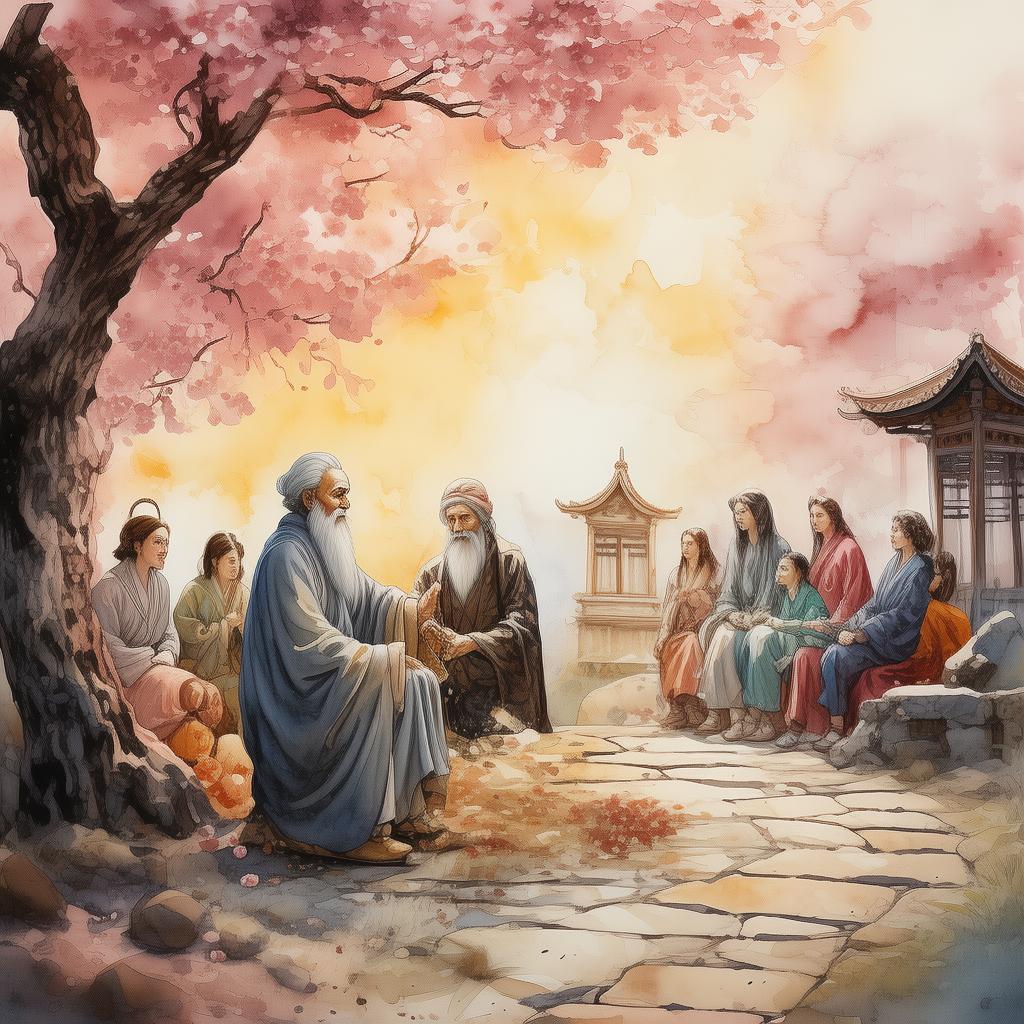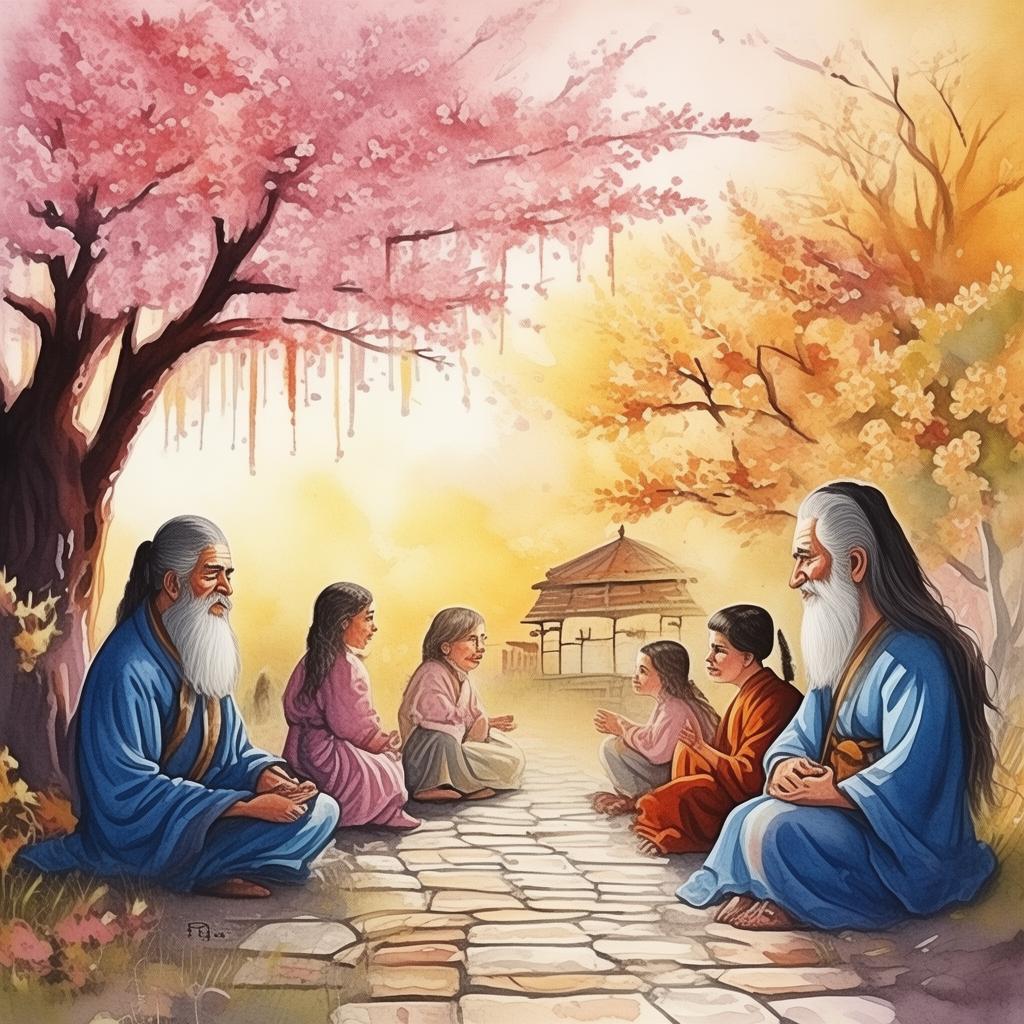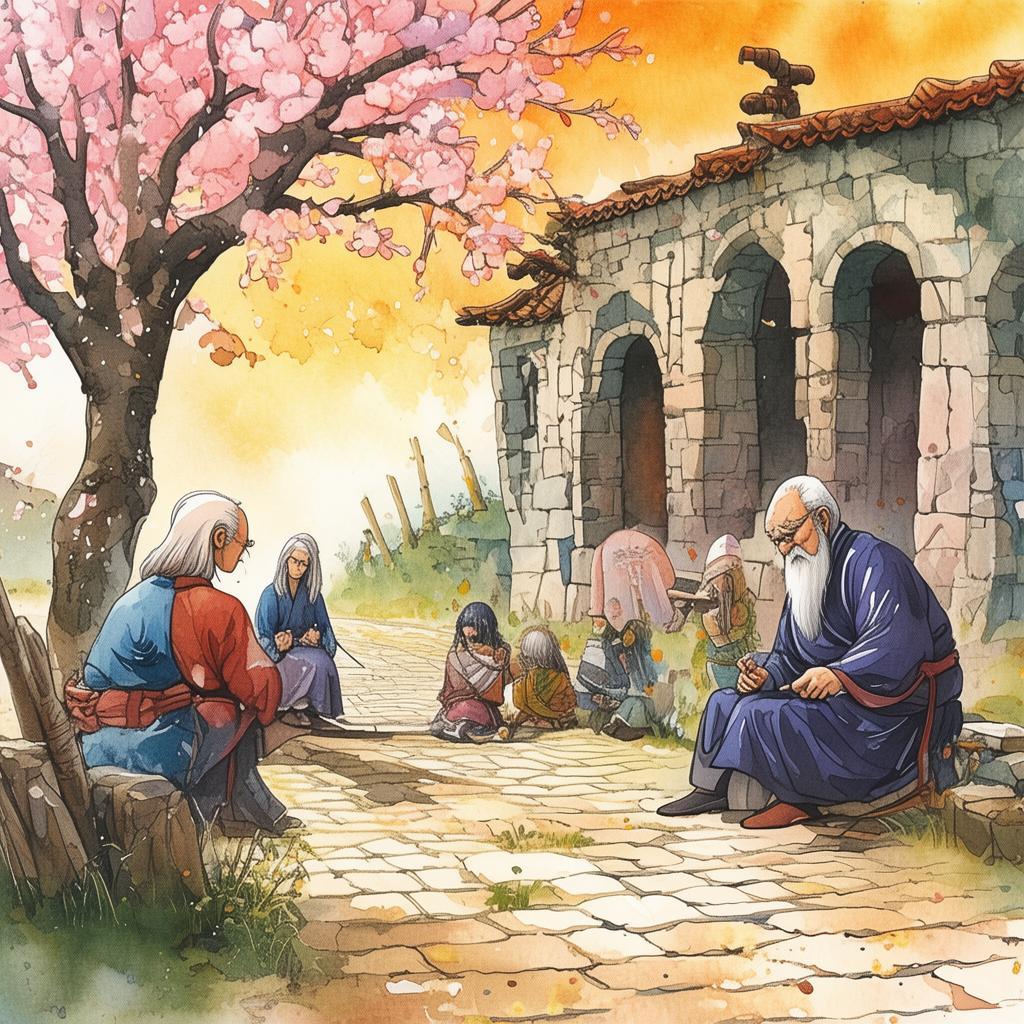Confucius and the Path of Virtue: The Tale of the Golden Rule
In the ancient Chinese state of Lu, during the time of the Spring and Autumn period, there lived a great philosopher named Confucius. His teachings, known for their emphasis on virtue and moral conduct, had spread far and wide. One day, a young man named Jing, eager to learn from the wise sage, approached Confucius at his humble abode.
Jing was a man of great ambition, but he often found himself at odds with others. He sought to understand the essence of wisdom and how to navigate the complexities of human relationships. Confucius, recognizing the sincerity in Jing's eyes, agreed to teach him.
One morning, as the sun rose over the tranquil village, Confucius led Jing to the local marketplace. The bustling sounds of merchants selling their wares and the laughter of children playing filled the air. Confucius pointed to a group of people arguing over a small matter.
"Observe," he instructed Jing, "and tell me what you see."
Jing watched for a moment, then replied, "I see people arguing and failing to find common ground."
Confucius nodded. "Now, go and speak to them, and ask them why they are so angry."
Jing approached the group, his heart pounding with anticipation. He listened to their arguments and soon realized that the disagreement stemmed from a misunderstanding. The two parties, both of whom were selling similar goods, had mistakenly believed that the other was trying to deceive them.
"Ah, I see," Jing said, "they are arguing because they believe they are being taken advantage of."
Confucius smiled. "And what would you say to them to resolve this conflict?"
Jing pondered for a moment, then said, "I would tell them that both parties are trying to do their best and that perhaps they could find a way to work together for mutual benefit."
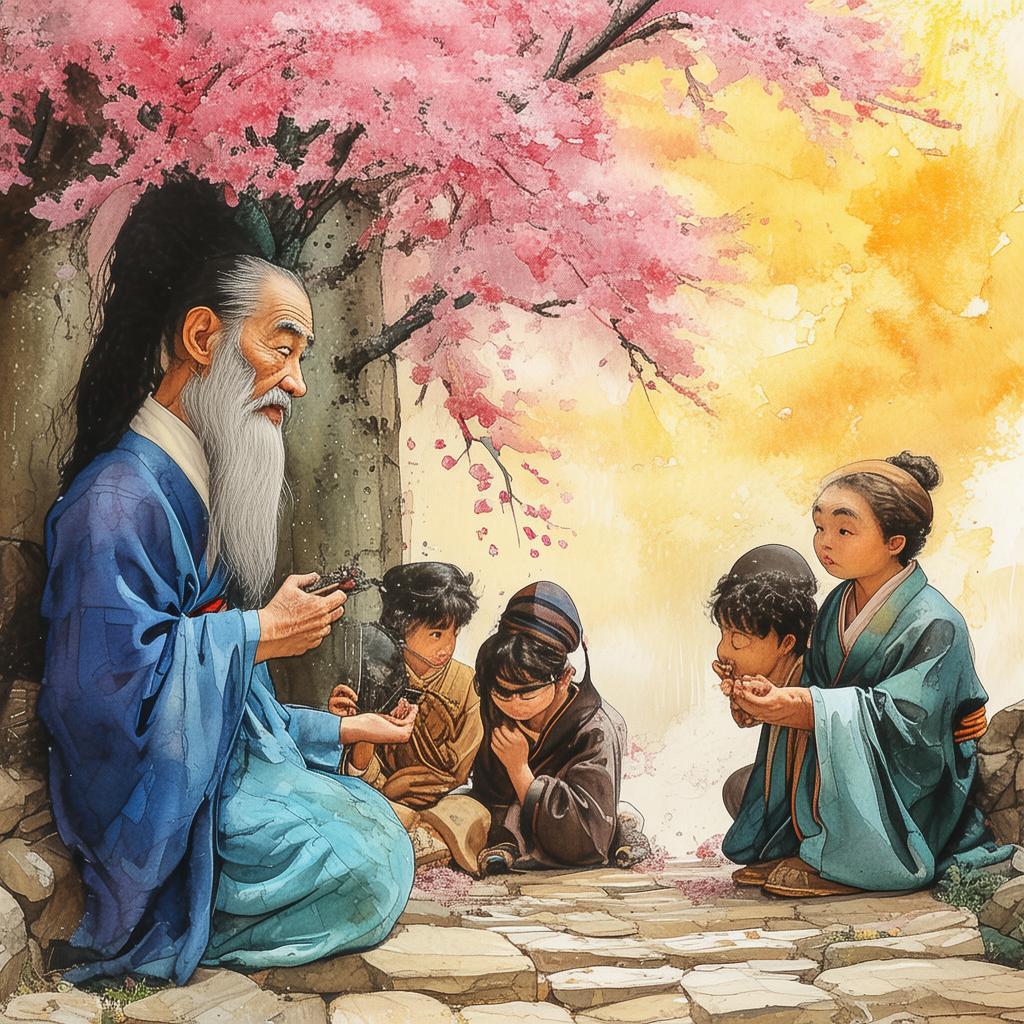
Confucius clapped his hands in approval. "Good, but there is more to it than that. Go back to them and tell them what I am about to teach you."
Jing returned to the group and shared Confucius's words. He spoke of the Golden Rule, a principle that Confucius had often emphasized: "Do not do to others what you would not have them do to you."
The group listened intently, and as Jing finished speaking, there was a moment of silence. Then, one of the merchants stepped forward, his face softened.
"We have been so caught up in our own concerns," he said, "that we failed to see the other's perspective. Thank you for teaching us this important lesson."
The other merchants nodded in agreement, and soon, the conflict had dissolved. They agreed to collaborate and create a more prosperous marketplace for all.
Confucius turned to Jing with a smile. "You have learned well, my young friend. The Golden Rule is the foundation of all virtue. It teaches us to consider the well-being of others before our own desires. Remember, the path to wisdom is not just about understanding the world, but about understanding our place in it."
Jing bowed deeply, his heart filled with gratitude. He realized that true wisdom was not about personal gain, but about living a life of integrity and compassion.
From that day on, Jing carried the Golden Rule with him in all his interactions. He became a respected figure in the community, known for his fairness and kindness. His story, and the tale of the Golden Rule, spread far and wide, becoming a testament to the power of moral conduct and the wisdom of Confucius.
The encounter between Confucius and Jing served as a powerful lesson on the importance of empathy and the universal nature of moral principles. It highlighted the impact that a single act of understanding and compassion can have on resolving conflicts and fostering harmonious relationships. Jing's journey from a man of ambition to a wise and virtuous individual serves as an inspiration to all who seek to live a life of purpose and integrity.
✨ Original Statement ✨
All articles published on this website (including but not limited to text, images, videos, and other content) are original or authorized for reposting and are protected by relevant laws. Without the explicit written permission of this website, no individual or organization may copy, modify, repost, or use the content for commercial purposes.
If you need to quote or cooperate, please contact this site for authorization. We reserve the right to pursue legal responsibility for any unauthorized use.
Hereby declared.
